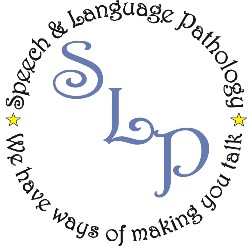Speech and Language Program

SPEECH LANGUAGE IMPAIRMENT AS A SPECIAL EDUCATION ELIGIBILITY
The individuals with Disabilities Education Act (IDEA) sets the federal standard for educating students with disabilities. Students also qualify for special education services according to the California Education Code. A student with a Speech Language Impairment is defined as a pupil who has been "assessed as having a language or speech disorder which makes him or her eligible for special education and related services when he or she demonstrates difficulty understanding or using spoken language to such an extent that it adversely affects his or her educational performance and cannot be corrected without special education and related services" (CEC, Section 56333).
Children 3 - 22 years of age who meet criteria for special education services may be eligible Speech and Language services. School-based Speech Pathologists share in the decision-making process with the IEP team to determine how to best meet the educational needs of individual students.
WHAT IS SCHOOL-BASED SPEECH THERAPY?
School-based speech therapy is a related service that supports the educational program
for students who have a disorder in communication in one or more of the following areas:
Articulation: The production of speech sounds significantly interferes with communication and attracts adverse attention.
Language: Inappropriate or inadequate acquisition, comprehension or expression of spoken language.
Stuttering: Difficulties which result in the abnormal flow of verbal expression to such a degree that they adversely affect communication.
Voice: A voice that is characterized by persistent, defective vocal quality, pitch or loudness.
TIPS FOR HELPING STUDENTS WHO HAVE A COMMUNICATION DELAY
• Articulation Play activities which include sound awareness and discrimination, songs, stories and games that emphasize letter sounds
Identify a "target sound of the week". Find objects that begin with the sound, make a sound book with pictures, and listen for the sound when reading stories.
• Language - Receptive, Expressive, Social Pragmatic
Talk to your student about everything you do together.
"Match plus one" - imitate the child's verbal expression and add one word to model expanded language at his/her appropriate learning level.
Incorporate role-playing, story-telling and play-acting into activities.
Encourage students to tell you what they want rather than anticipating their needs.
Gain students' attention and have child repeat directions to check for understanding.
Break instructions into smaller parts to assure comprehension.
Make connections in every aspect of your child's life for understanding of new vocabulary.
Use visuals to assist storytelling and learning of daily routines. Fluency
Minimize interruptions, competition and a barrage of questions.
Model acceptance for individual differences.
Accept and listen to the student's message.
• Voice Consult with the school nurse about possible medical concerns.
Provide opportunities for the student to speak in a normal voice tone, minimizing situations where he or she will shout or scream.
About Our School’s Speech Language Pathologist (SLP)
Mrs. Velasco has been in this field for over nine years. She holds a master’s degree from California State University, Long Beach, holds the Certificate of Clinical Competence (CCC) from the American Speech Language Hearing Association (ASHA) and is licensed by the state of California to practice speech-language pathology. She also holds Speech-Language Pathology Services Credential to work in the school system.
Contact Information:
Mrs. Velasco, SLP
Email: [email protected]
Phone: (562) 801-5031 x102
edited from:http://sped.lausd.net/sepg2s/pg3_speechandlang.htm